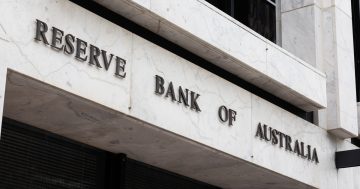Ben Winck* says Morgan Stanley is the latest Wall Street giant to officially predict a recession this year because of coronavirus.
 Morgan Stanley joined its industry peers on 17 March in officially calling a coronavirus-fuelled recession by the end of 2020.
Morgan Stanley joined its industry peers on 17 March in officially calling a coronavirus-fuelled recession by the end of 2020.
The bank’s new base-case scenario sees global gross domestic product (GDP) growth mildly contracting in the first half of the year before a rebound through the end of 2020.
Global growth will hit 0.9 per cent for the full year, making the coronavirus downturn more pronounced than the recession seen in 2001 but less severe than the 2008 Global Financial Crisis, the economists said.
Morgan Stanley anticipates further central bank easing around the world despite a spate of stimulus measures being announced over recent weeks.
The US Federal Reserve issued two emergency rate cuts over the two weeks to lift borrowing activity, joining Australia, Japan, the UK, and the eurozone’s central banks in propping up economies amid growing risks.
The economists expect 25 banks to enter the easing path by the third quarter and help pull the global economy from a nearly unavoidable slump.
“While the policy response will provide downside protection, the underlying damage from both COVID-19’s impact and tighter financial conditions will deliver a material shock to the global economy,” the economists led by Chetan Ahya wrote last week.
China is projected to face the brunt of the economic contraction in the first quarter before the rest of the world absorbs the second-quarter hit, Morgan Stanley said.
The country’s economy will shrink by 5 per cent in the first quarter before rebounding to expansion through 2020, while the US economy will contract by 4 per cent in the second quarter.
The eurozone will face the biggest drop, with full-year growth slipping to –5 per cent, the economists added.
Morgan Stanley is monitoring the duration of the outbreak’s economic disruption and the length of “dislocations in financial markets”.
Prolonged pressure on credit markets could push the coronavirus hit into the third quarter and drive an even deeper recession of –0.6 per cent annual global growth, the economists said.
The updated GDP estimates echo recession calls made by JPMorgan and Goldman Sachs over the previous week.
Both firms revised their base cases to reflect US economic contraction through the first half of the year as the virus drives a rapid halt to consumer activity.
Goldman expects the economy to notch a sharp bounce-back through the end of the year, while JPMorgan analysts are watching policy responses to see whether the downturn turns into a “traditional and longer-lasting recession event”.
* Ben Winck is Markets Insider Reporter for Business Insider. He tweets at @benwinck.
This article first appeared at www.businessinsider.com.au.









